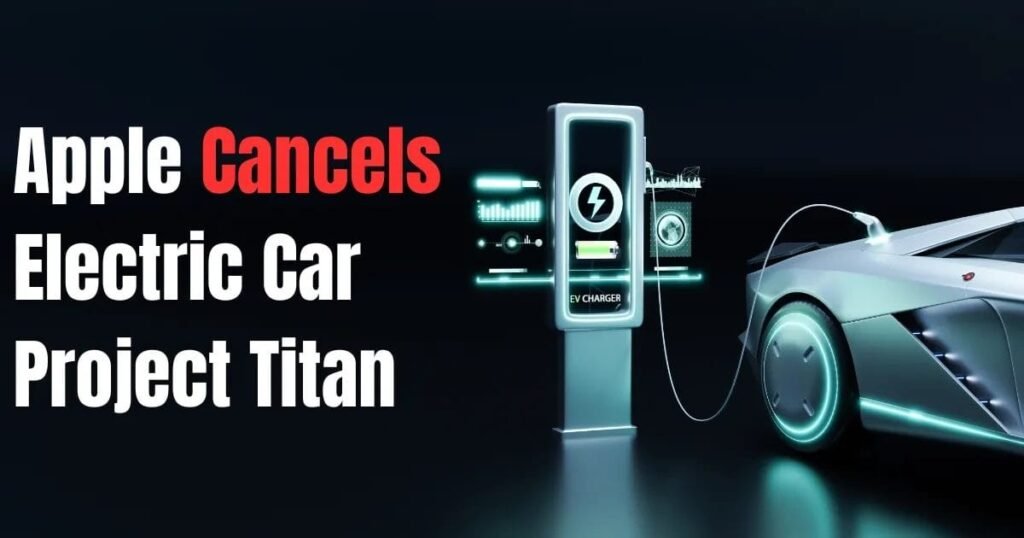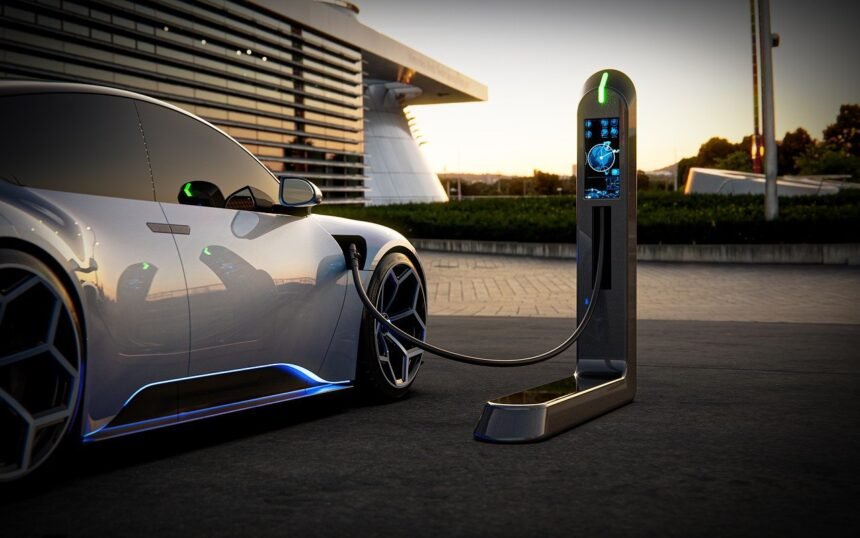Introduction: Apple’s electric car project
Apple’s Electric Car Project: In an amazing new development, Apple Inc. has declared the slowing down of its eagerly awaited electric car project, codenamed “Titan.” This choice denotes the perfection of a very long term odyssey loaded up with hypothesis, organization adventures, and a brief look into the tech goliath’s introduction to the car business.
Bloomberg reports that leaders have trained staff to stop work on the undertaking, diverting a few representatives to Apple’s computer based intelligence division. Anyway, what prompted the conclusion of this aggressive task, and what’s the significance here for the eventual fate of Mac’s endeavors past the domain of cell phones and PCs?
The Genesis of Titan: Unveiling Apple’s Automotive Ambitions
The Apple’s electric car project previously acquired boundless consideration as reports whirled about the organization’s mysterious endeavors to foster an electric vehicle. Notwithstanding Apple’s trademark hush approach, it was assessed that around 5,000 representatives were committed to the task starting around 2018. The tech world was swirling with hypothesis about Apple’s capability to disturb the auto business with its unique mix of development and plan ability.
Partnerships and Progress: Milestones in the Electric Car Journey
The Apple electric car project previously acquired boundless consideration as reports whirled about the organization’s clandestine endeavors to foster an electric vehicle. In spite of Apple’s trademark quiet methodology, it was assessed that around 5,000 representatives were devoted to the venture starting around 2018. The tech world was swirling with hypothesis about Apple’s capability to disturb the auto business with its unique mix of development and plan ability.
Shifting Directions: From Vehicles to Autonomous Technology
Further bits of knowledge into Apple’s advancement became exposed in August 2018 when the BBC announced that the organization had 66 street enlisted driverless vehicles, monitored by 111 enrolled drivers. These discoveries highlighted Apple’s commitment to testing and refining its independent driving innovation, cementing its situation as a serious competitor in the race towards self-driving vehicles.
YOU MAY ALSO LIKE: Pearlyn Goh Kun Shan: The Mother Behind Jessica Henwick’s Success Story
Uncertain Horizons: Speculation and Delays in Project Timeline

However, as the years passed, the direction of Apple’s electric car project appeared to become sidetracked. By 2020, it became clear that Apple was zeroing in more on self-driving-related equipment, programming, and administrations as opposed to fostering its own marked vehicles. Hypothesis kept on whirling in regards to the task’s course of events, with clashing reports recommending days for kickoff going from 2024 to as late as 2028 or past.
The End of the Road: Apple’s Decision to Wind down Titan
Now, with the choice to unwind the task by and large, the fate of Apple’s auto desires remains in a precarious situation. While the particulars behind the conclusion remain covered in mystery, obviously Apple has decided to turn its assets and consideration somewhere else. The choice to divert workers to the artificial intelligence division demonstrates an essential shift towards utilizing man-made consciousness and AI in different region of the organization’s business.
Implications and Insights: Analyzing the Closure’s Impact
What’s the significance here for the more extensive scene of electric vehicles and independent driving innovation? While Apple’s takeoff from the scene might come as a failure to some, the electric vehicle market keeps on flourishing with rivalry from laid out automakers and arising new businesses the same. Organizations like Tesla, with its inventive way to deal with electric vehicles and independent driving, stay at the bleeding edge of this mechanical upset.
Looking Ahead: Apple’s Future in Innovation and Technology
As for Apple, the closure of the electric vehicle venture might address a transitory misfortune, yet hosing the organization’s soul of innovation is improbable. With its huge assets and unmatched aptitude, Apple stays ready to take critical steps in forming the fate of transportation, regardless of whether the way ahead may appear to be unique from what many had expected.
YOU MAY ALSO LIKE: Unveiling the Protrickylooter Sale Secrets
Conclusion: Apple’s electric car project
In conclusion, the closure of Apple’s electric car project fills in as a sign of the intricacies and vulnerabilities inborn in mechanical development. While the street might have reached a conclusion for “Titan,” the excursion towards a more maintainable associated and independent future proceeds, driven by the aggregate endeavors of visionaries, specialists, and organizations focused on pushing the limits of what’s conceivable.
Frequently Asked Questions about Apple’s Electric Car Project Closure
1. Why did Apple decide to wind down its electric car project?
Apple’s decision to wind down its electric car project, codenamed “Titan,” comes amidst shifting priorities and strategic realignment within the company. While specific reasons behind the closure remain undisclosed, it is speculated that Apple aims to redirect resources towards other ventures, potentially focusing on artificial intelligence and machine learning.
2. What were the major milestones in Apple’s electric car project?
Throughout its development, Apple’s electric car project achieved several significant milestones, including partnerships with Volkswagen for autonomous shuttle vans and the registration of road-tested driverless cars. These milestones reflected Apple’s progress in exploring the intersection of technology and automotive innovation.
3. Will Apple still be involved in the automotive industry despite the closure of its electric car project?
While Apple’s decision to wind down its electric car project may suggest a shift away from direct involvement in vehicle manufacturing, the company’s expertise in software, hardware, and AI could still play a significant role in shaping the future of automotive technology. Apple’s continued investment in autonomous driving technology underscores its commitment to advancing innovation in this field.
4. What does the closure of Apple’s electric car project mean for the electric vehicle market?
While Apple’s departure from the electric car market may impact the landscape to some extent, the overall growth and innovation in the electric vehicle market remain robust. With numerous automakers and startups actively developing electric and autonomous vehicles, competition and innovation in the industry are expected to continue unabated.
5. What are the implications of Apple redirecting employees to its AI division?
Apple’s decision to redirect employees from its electric car project to its AI division suggests a strategic pivot towards leveraging artificial intelligence and machine learning in other areas of the company’s business. This reallocation of talent underscores Apple’s commitment to harnessing cutting-edge technologies to drive innovation across multiple fronts.
6. Is there still potential for Apple to re-enter the electric car market in the future?
While the closure of Apple’s electric car project may mark a temporary setback, the company’s history of innovation and its vast resources leave the door open for potential re-entry into the automotive industry in the future. The evolving landscape of technology and consumer demand could present new opportunities for Apple to explore in the realm of electric and autonomous vehicles.
ALSO READ: Who is Jessica Henwick?










